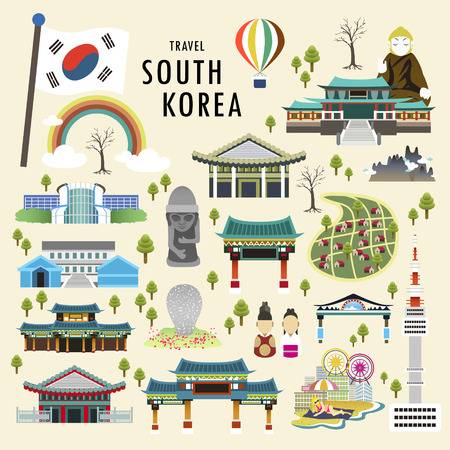
People and Culture in South Korea!
Korean citizens are generally kind and accepting of tourists, but in a culture that is far more conservative than America’s, following etiquette is crucial. Respect is paramount, and Koreans may take offense at behavior that you wouldn’t blink twice at witnessing at home
Formality and Politeness
Showing respect to anyone older than you is important when visiting Korea. Treating your elders like equals is considered rude. Koreans shake hands and bow at the same time. The depth of the bow depends on the relative seniority of the two people.
Greeting:
South Koreans usually shake hands when they meet for the first time. In order to show respect, individuals support their right forearms with their left hand. The bow is also a traditional South Korean greeting and is often accompanied by a handshake among men.
Check out some basic greetings on youtube to help you get started!

Drinking or Eating customs?
- During Korean mealtimes, do not hold your bowl of soup or rice. It is proper etiquette to leave bowls on the table while eating. This custom is slightly different from other Asian countries like China or Japan where lifting your bowl while eating is acceptable
- Not finishing your meal is considered impolite and wasteful. In Korean culture, it is respectful to clean your plate.
- Acknowledge your host! If someone has hosted you in their home or treated you to a meal out, it is customary to acknowledge your thanks after the meal. In Korean, people say masegaemugusuyo (I ate well).
- When it comes to chopsticks, do not stick your chopsticks straight up in your bowl. Not only is this disrespectful, but it is also a sign of bad luck. Utensils are to be placed back on the table when finished
Tipping
Tipping in Korea is not common practice. This is true for restaurants as well as delivery people. In most hotels, tips are included in the bill.
Find out more about Etiquette in South Korea
- Take off your shoes when entering someone’s home. There is usually a shelf or ample space for every guest’s shoes.
- The family is the most important part of Korean life. In Confucian tradition, the father is the head of the family and it is his responsibility to provide food, clothing and shelter, and to approve marriages or moves by family members. The eldest son has special duties including first his parents, then his brothers from older to younger, then to his sons, then to his wife, and lastly to his daughters. Family welfare is much more important than the individual.
- Gift giving is an important part of Korean tradition. Gifts might be given to cultivate a personal relationship, before conducting business, or to encourage aid from someone in a position above. A return gift or favor is usually expected. Koreans seldom open a gift in public. The recipient may put your gift aside without opening it in consideration of not to embarrass you at the smallness of the gift. They’ll open it if you politely ask them to.
